Indigenous Governance Database
child welfare
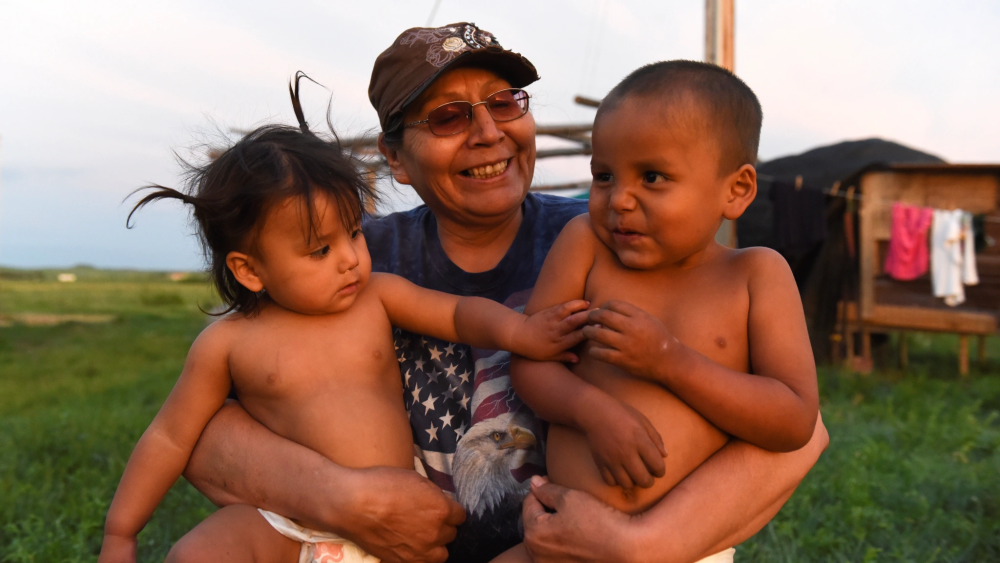
How does measuring poverty and welfare affect American Indian children?
For one group of children in particular, American Indians and Alaska Natives, exceedingly high poverty rates have had profound impacts on community wellbeing and long-term cohesiveness. Given the best available data, from the U.S. Census data, child poverty rates among American Indians and Alaska…
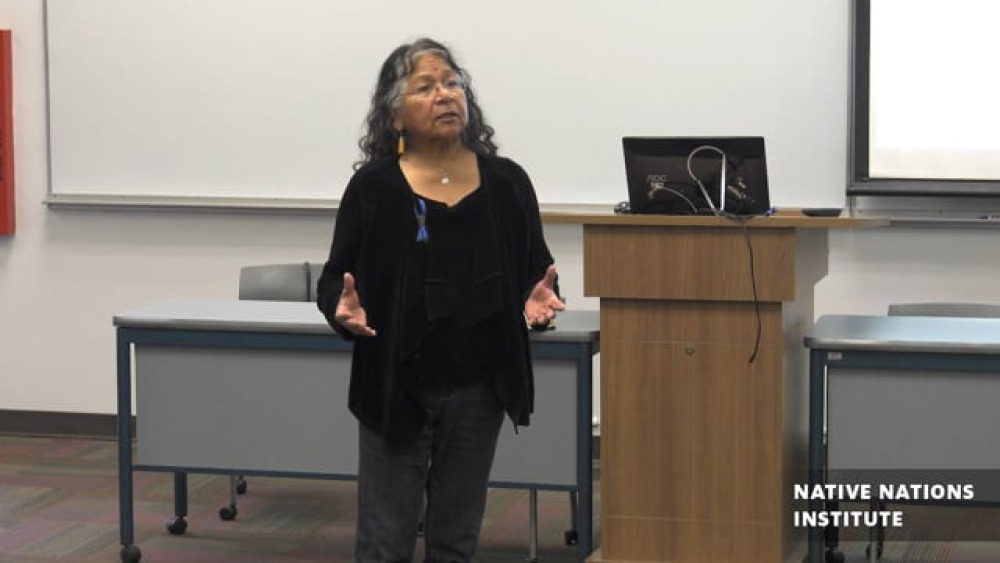
Diane Enos: Native Women in Governance
Diane Enos, Attorney, Councilwoman & Former President of Salt River Pima-Maricopa Indian Community. In addition to her tenure with the Salt River Pima – Maricopa Indian Community, Diane has served as Vice President of the Inter-Tribal Council of Arizona, as Chairwoman of the Arizona Indian…
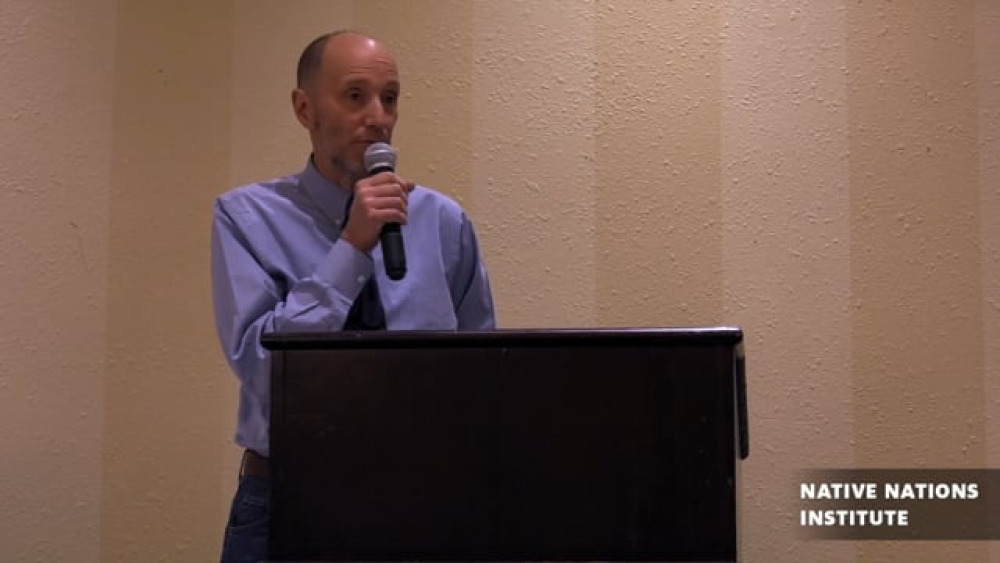
Jack Trope, Making the Indian Child Welfare Act Work: The Importance of Tribal Sovereignty
The expertise and knowledge about dealing with Alaska and Federal government entities in matters of child welfare are detailed with focus on asserting tribal sovereignty.
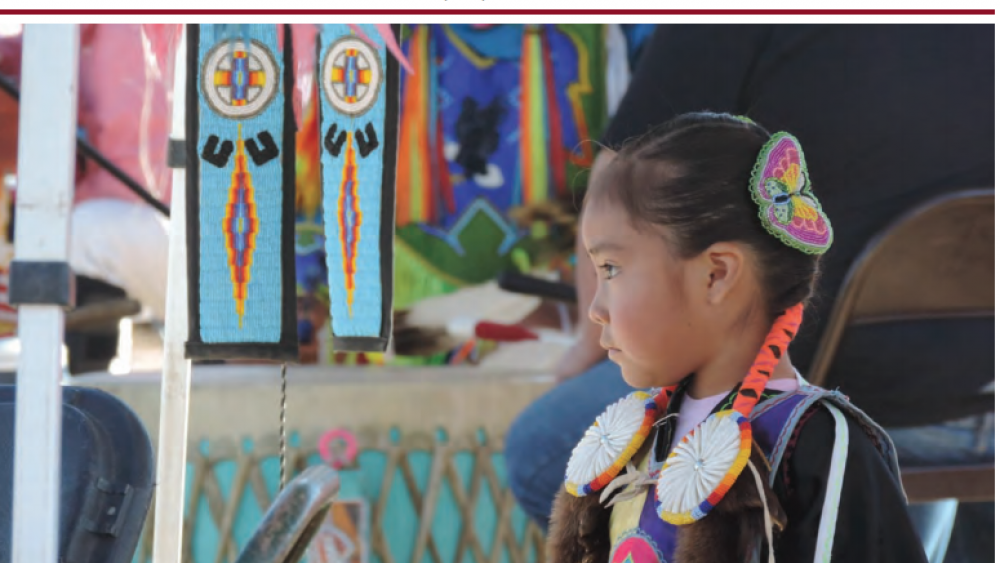
Tribal Child Welfare Codes as Sovereignty in Action. 2016 NICWA conference edition
With passage of the Indian Child Welfare Act of 1978 (ICWA), Congress formally recognized Native nations’ inherent authority to govern child welfare matters and provided support for tribal self-determination over child welfare. Because ICWA “assumes that a tribal code is the governance mechanism by…
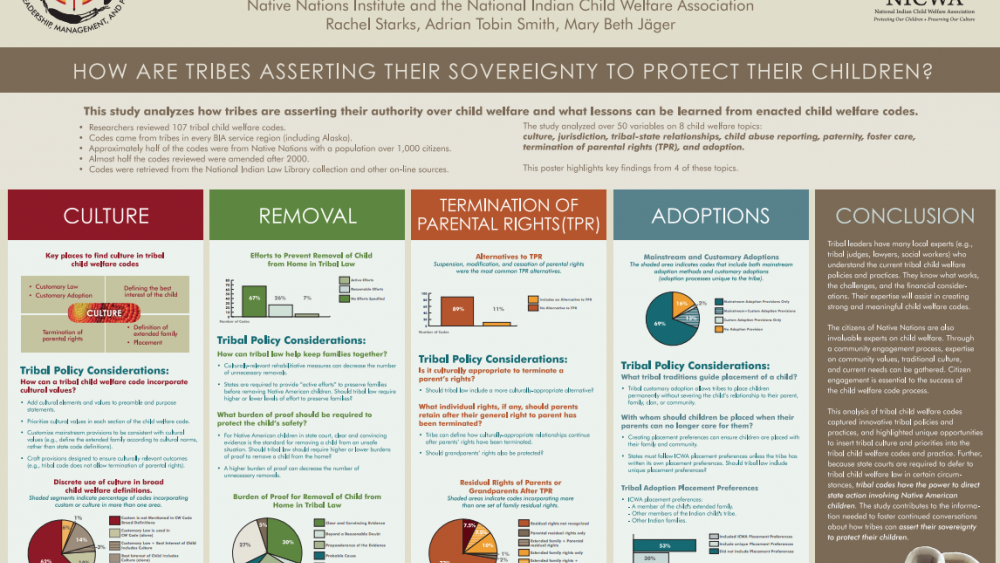
Protecting Our Children: A Review of 100+ Tribal Welfare Codes
NNI researchers Mary Beth Jäger (Citizen Potawatomi), Rachel Starks (Zuni/Navajo), and National Indian Child Welfare Association governmental affairs staff attorney, Adrian Smith shared the results of an ongoing study on culture, removal, termination of parental rights, and adoption in tribal child…
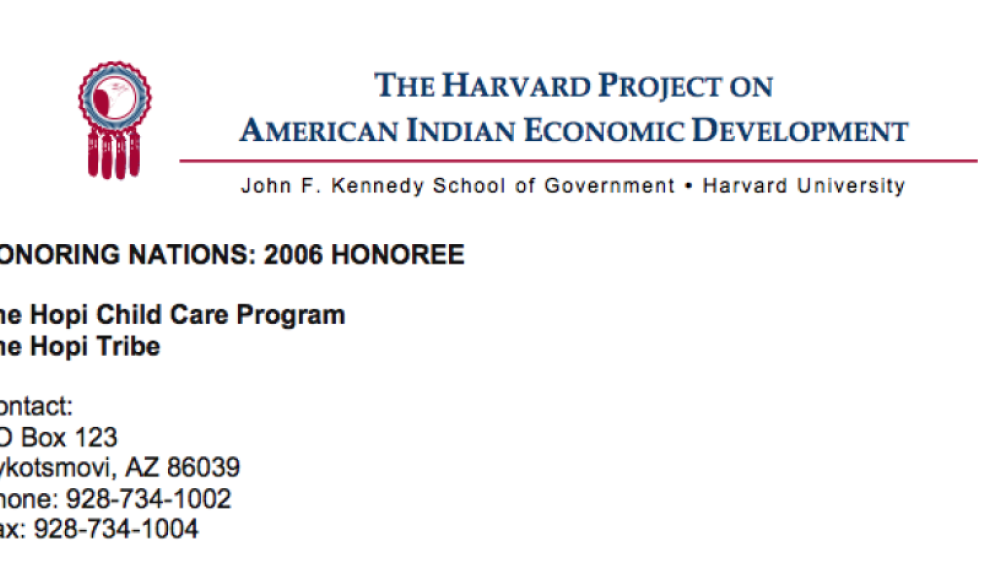
Hopi Child Care Program
The Hopi Child Care Program assists families in accessing quality care for children of parents pursuing education and those with work demands that keep them away from home. Understanding the importance of early childhood development coupled with the need for culturally appropriate care, Hopi…
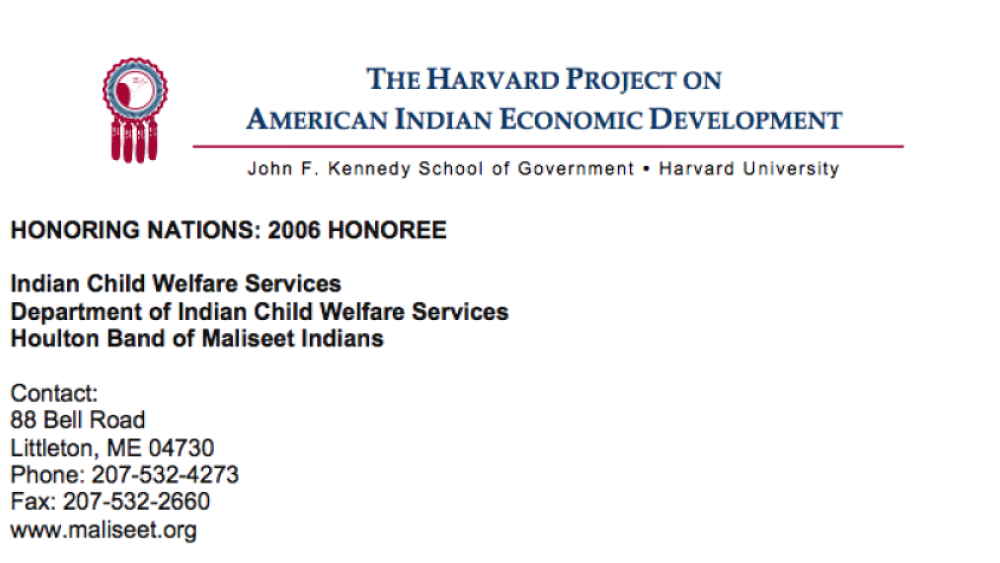
Houlton Band Indian Child Welfare Services
Seeking to establish collaborative working relationships with the state while firmly asserting sovereignty over Maliseet children, a Child Welfare Department was formed by the Houlton Band. The department created a Child Protective Team made up of professionals and volunteers to review and seek…

Honoring Nations: Julie Wilson: Child Welfare in Indian Country
Scholar Julie Wilson opens the session "Family Strengthening in Indian Country" with a discussion of recent research conducted by the Harvard Project on American Indian Economic Development that explores the role families play in improving child and community welfare in Indian Country, highlighting…
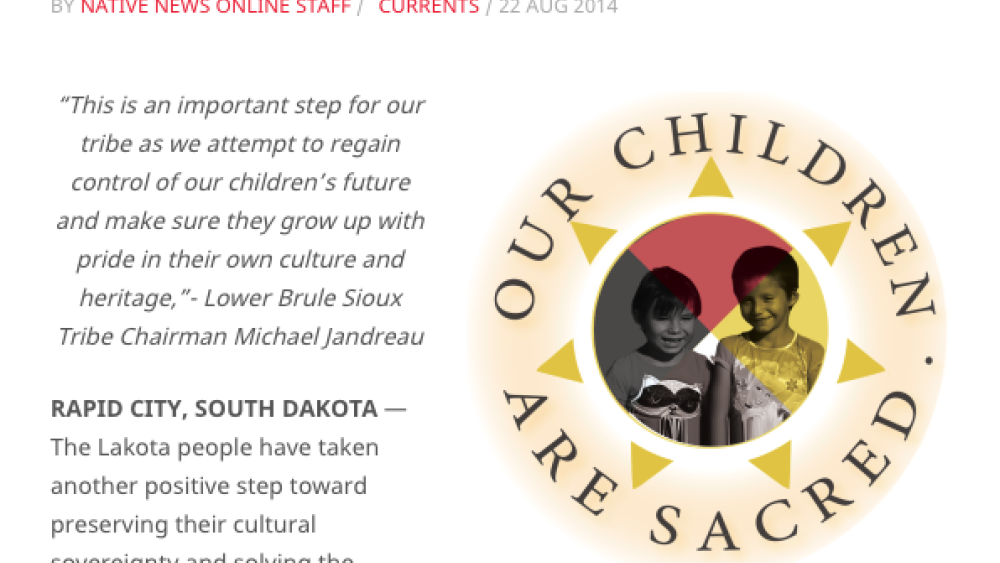
Two More South Dakota Lakota Tribes Advance Toward Their Own Foster Care Systems, Intending to Replace the State DSS System
The Lakota people have taken another positive step toward preserving their cultural sovereignty and solving the persistent foster care crisis in the state as two more tribes have joined the movement to apply for available federal funding to plan their own tribal-run foster care system... The Lower…
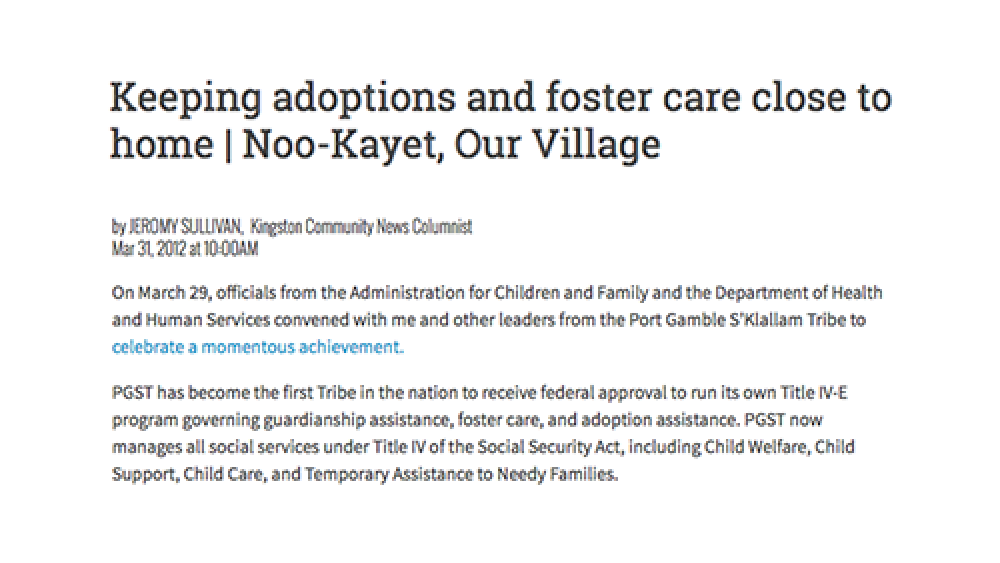
Keeping adoptions and foster care close to home
On March 29, officials from the Administration for Children and Family and the Department of Health and Human Services convened with me and other leaders from the Port Gamble S’Klallam Tribe to celerate a momentous achievement. PGST has become the first Tribe in the nation to receive federal…
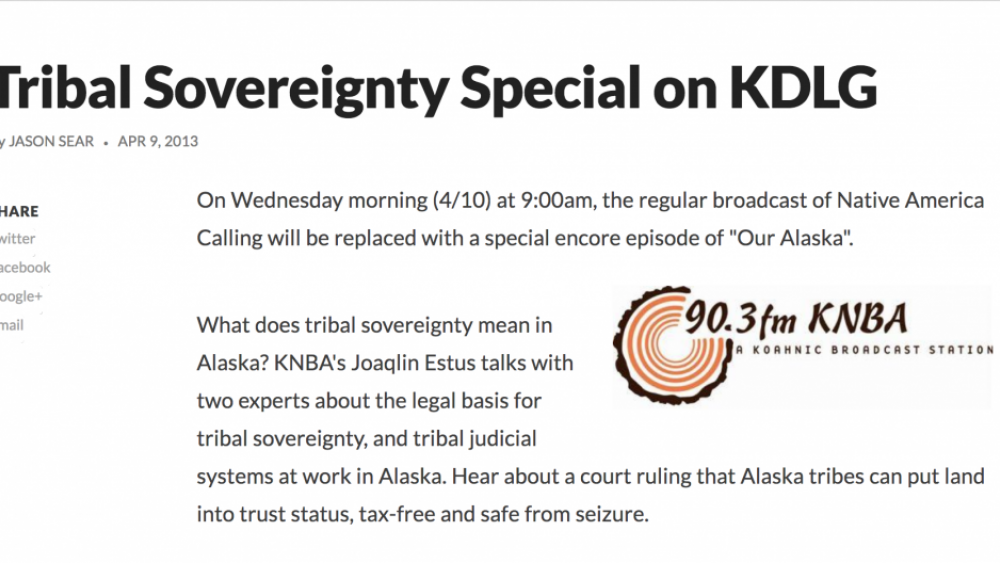
Tribal Sovereignty Special
What does tribal sovereignty mean in Alaska? KNBA's Joaqlin Estus talks with two experts about the legal basis for tribal sovereignty, and tribal judicial systems at work in Alaska. Hear about a court ruling that Alaska tribes can put land into trust status, tax-free and safe from seizure...
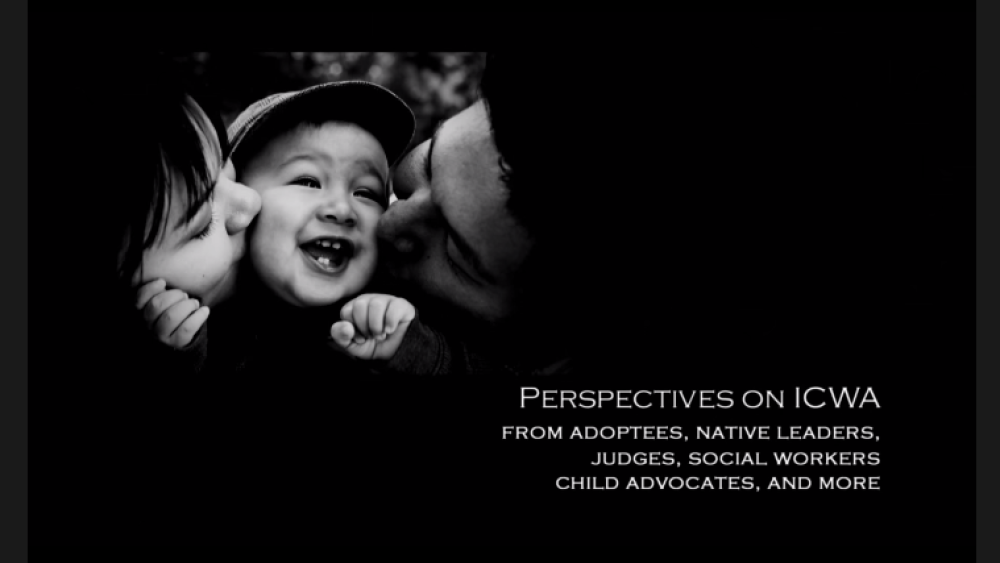
Bringing Our Children Home: An Introduction to the Indian Child Welfare Act
This six-minute trailer introduces viewers to a documentary film (currently in development) that examines the impact of the Indian Child Welfare Act (ICWA). The documentary is the product of an ongoing collaboration between the Mississippi Courts, Child Welfare Agency, the Mississippi Band of…
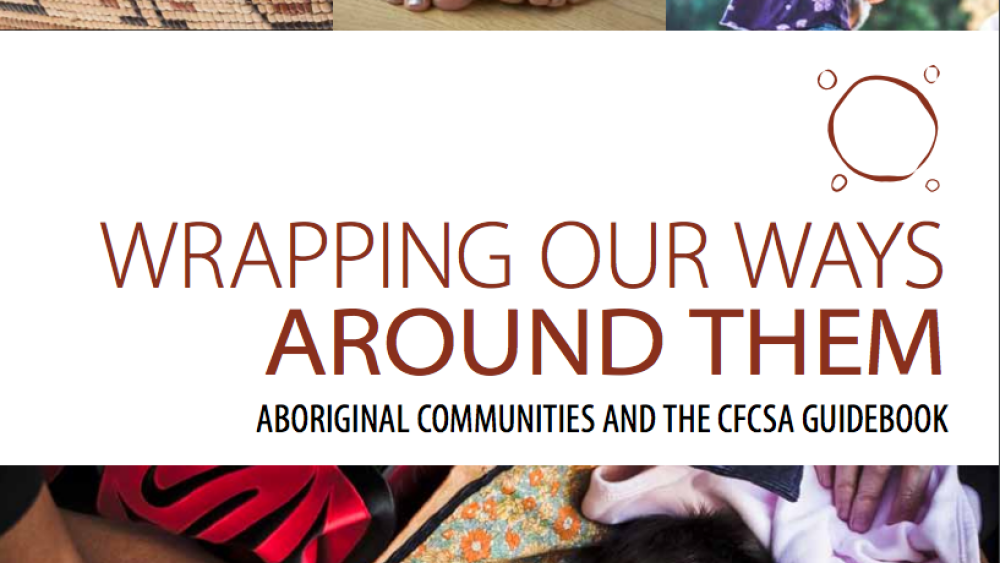
Wrapping Our Ways Around Them: Aboriginal Communities and the CFCSA Guidebook
This Guidebook is based on the belief that Aboriginal peoples need to know, and work with, the systems that impact children and families today such as the Child, Family and Community Service Act (CFCSA), Provincial Court (Child, Family and Community Service Act) Rules (Rules), Child, Family and…
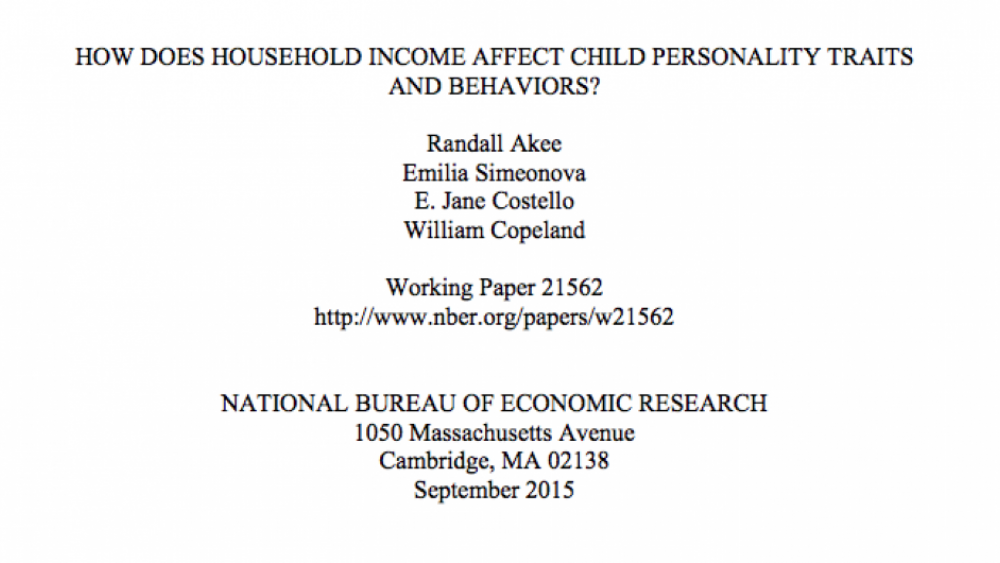
How Does Household Income Affect Child Personality Traits and Behaviors?
Existing research has investigated the effect of early childhood educational interventions on the child's later-life outcomes. These studies have found limited impact of supplementary programs on children's cognitive skills, but sustained effects on personality traits. We examine how a positive…
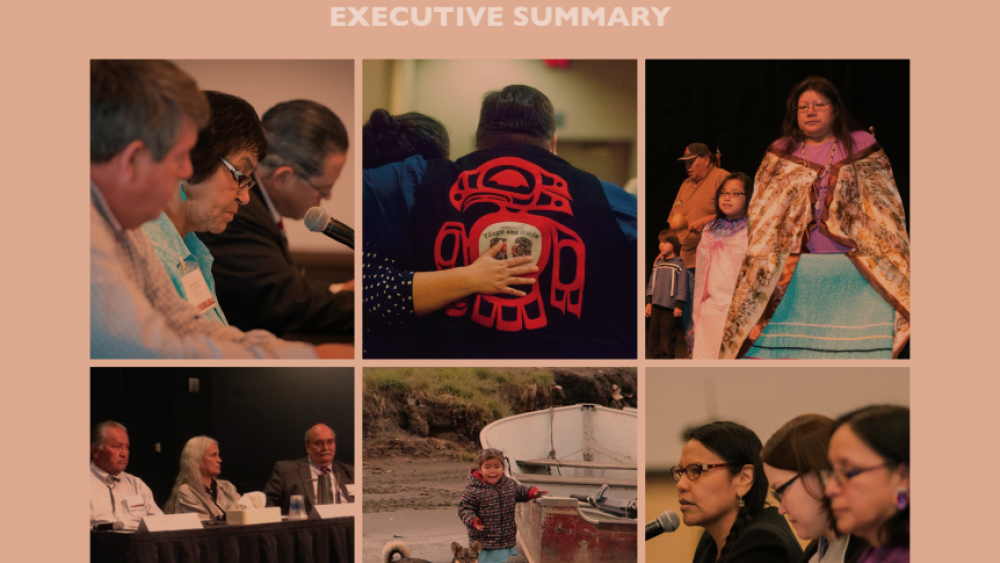
Attorney General's Advisory Committee on American Indian/Alaska Native Children Exposed to Violence: Ending Violence so Children Can Thrive
This report was created as part of the Defending Childhood Initiative created by Attorney General Eric H. Holder, Jr. This initiative strives to harness resources from across the Department of Justice to: Prevent children's exposure to violence. Mitigate the negative impact of children's…
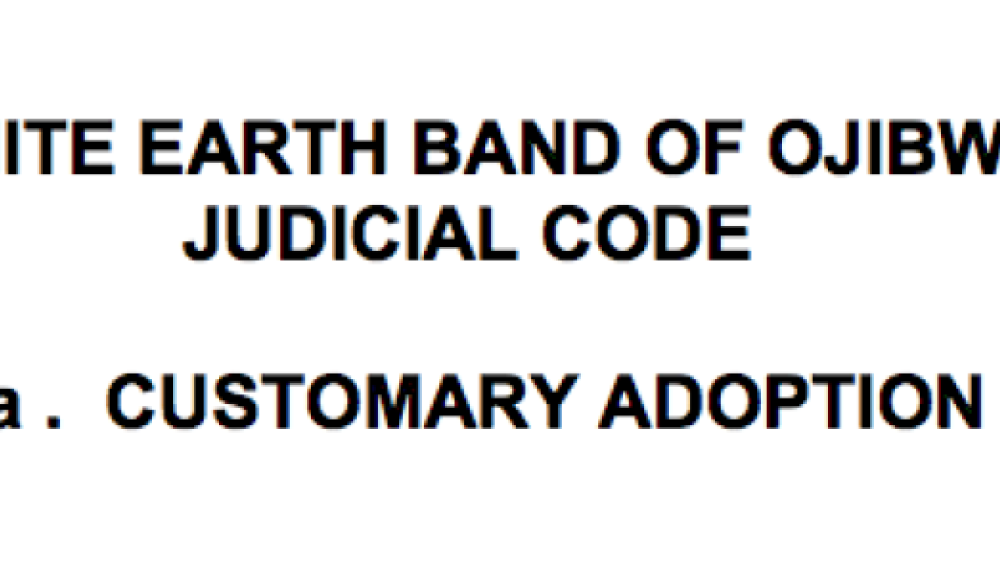
Customary Adoption Code, White Earth Band of Ojibwe
This code, developed by the White Earth Band of Ojibwe, allows adoption on the reservation for children but in a way that promotes cultural growth and support.
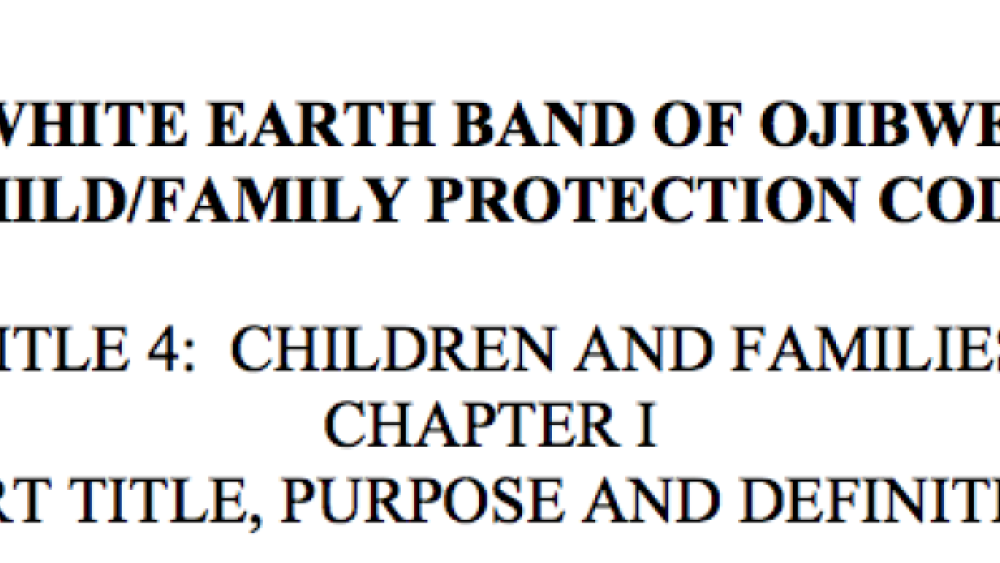
White Earth Band of Ojibwe Child/Family Protection Code
The Child/Family Protection Code, drafted by the White Earth Band of Ojibwe for the purpose of protecting children and families from events of abuse, poverty, and separation.
